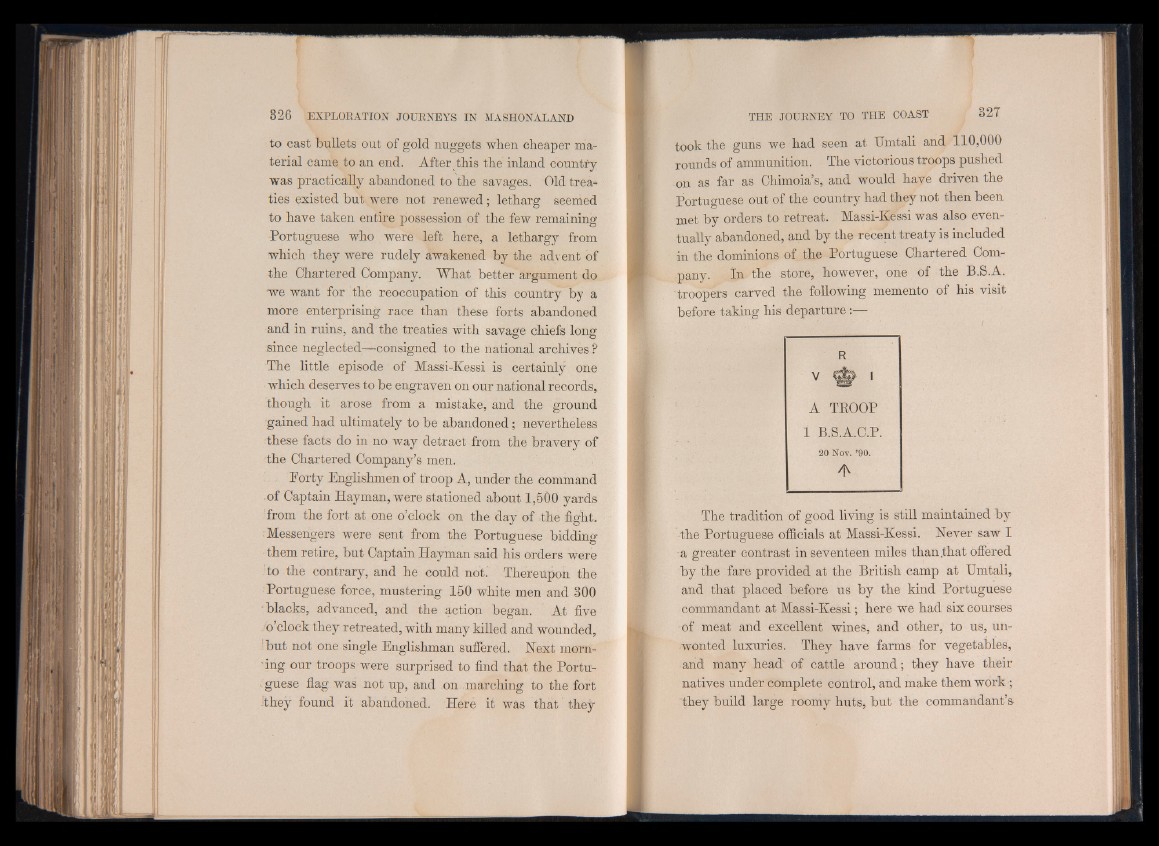
to cast bullets out of gold nuggets when cheaper material
came to an end. After this the inland country
was practically abandoned to the savages. Old treaties
existed but were not renewed; letharg seemed
to have taken entire possession of the few remaining
Portuguese who were left here, a lethargy from
which they were rudely awakened by the advent of
the Chartered Company. What better argument do
•we want for the reoccupation of this country by a
more enterprising race than these forts abandoned
and in ruins, and the treaties with savage chiefs long
since neglected—consigned to the national archives ?
The little episode of Massi-Kessi is certainly one
which deserves to be engraven on our national records,
though it arose from a mistake, and the ground
gained had ultimately to be abandoned; nevertheless
these facts do in no way detract from the bravery of
the Chartered Company’s men.
Forty Englishmen of troop A, under the command
.of Captain Hayman, were stationed about 1,500 yards
from the fort at one o’clock on the day of the fight.
Messengers were sent from the Portuguese bidding
■ them retire, but Captain Hayman said his orders were
to the contrary, and he could not. Thereupon the
Portuguese force, mustering 150 white men and 300
blacks, advanced, and the action began. At five
o clock they retreated, with many killed and wounded,
but not one single Englishman suffered. Next morning
our troops were surprised to find that the Portuguese
flag was not up, and on marching to the fort
They found it abandoned. Here it was that they
took the guns we had seen at TJmtali and 110,000
rounds of ammunition. The victorious troops pushed
on as far as Chimoia’s, and would have driven the
Portuguese out of the country had they not then been
met by orders to retreat. Massi-Kessi was also eventually
abandoned, and by the recent treaty is included
in the dominions of the Portuguese Chartered Company.
In the store, however, one of the B.S.A.
troopers carved the following memento of his visit
before taking his departure:—
R
A TEOOP
1 B.S.A.C.P.
20 N o v . ’90.
4
The tradition of good living is still maintained by
-the Portuguese officials at Massi-Kessi. Never saw I
-a greater contrast in seventeen miles than .that offered
by the fare provided at the British camp at XJmtali,
and that placed before us by the kind Portuguese
commandant at Massi-Kessi; here we had six courses
of meat and excellent wines, and other, to us, unwonted
luxuries. They have farms for vegetables,
and many head of cattle around; they have their
natives under complete control, and make them work;
they build large roomy hxxts, but the commandant’s